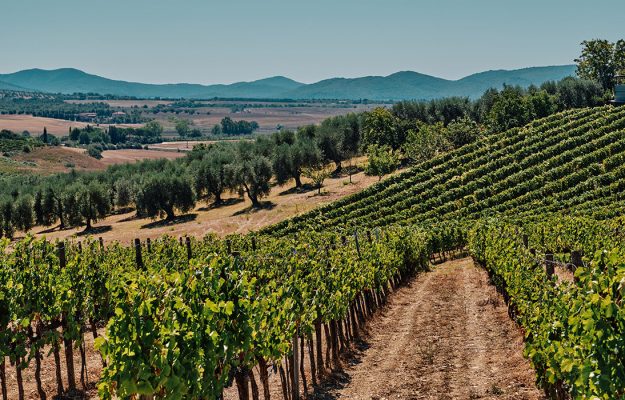In Tuscany, at the beginning of August, with a large part of Italy’s wine sector that was focusing on the strong attacks of Peronospora, looking at the harvest, which is actually starting to take shape during these days, the estimates of the presidents of the Consortiums of some of the most important denominations of the Region, heard by WineNews, painted a decidedly optimistic picture at that time. The president of the Brunello di Montalcino Consortium, Fabrizio Bindocci, spoke of damages “not serious, probably around 5%, but in a very good and productive year”, that of Chianti, Giovanni Busi, who estimated a loss of production by an average of 10-15%, a figure in line with what was declared by the president of the Chianti Classico Consortium, Giovanni Manetti, while that of Vino Nobile di Montepulciano, Andrea Rossi, had not gone too far in numbers, emphasizing that “there were issues, but they did not have to be disastrous”, while that of the Doc Bolgheri, Albiera Antinori, realistically hypothesized “a general decline in grape production that could reach a maximum of 20% in some vineyards”.
Today, to paint a broad overall picture, tendentially more complicated and perhaps more in line with current reality (and which many producers, with the microphones off, describe even in a decidedly worse way, ed.) is Confagricoltura: “The harvest in Tuscany is declining by 10 to 20% due to Peronospora attacks, which are more visible in the valley floor than in hilly areas and along the coast. The quality of the wines remains high, though a definitive picture will have to wait until the end of September, even though the winemakers are suffering from the high cost of treatments and raw materials. Furthermore, at least 5,000 workers are lacking compared to two years ago”, according to Francesco Colpizzi, president of the wine federation of Confagricoltura Toscana, acting as spokesperson for one of the most noble and economically important regions, after Veneto and, head to head, with Piedmont, when it comes to wine. And that paints a somewhat problematic picture.
“The harvest - he recalls - began about ten days ago with the earliest varieties, while now they are starting with the Merlot, beginning on the coast and moving inland. The frequent rains of the spring months favoured the reproduction of the fungus that attacks the vine leaves and the bunches, although the damage is quantitative rather than qualitative, the cost of the treatments has a significant impact on budgets”.
As if that weren’t enough, in addition to the drop in output and the increase in spending, there is another crisis: skilled labour who prefer to harvest elsewhere. “In countries such as Croatia, Switzerland, Hungary or Germany - specifies Colpizzi - there are much more advantageous tax policies for low-end incomes. With the same offer, therefore, the workers prefer to go there: it is a phenomenon that began last year and is now manifesting itself in all of its troubling ramifications. The fact is made even more serious by the fact that they are not seasonal workers, but rather employees who look after the vineyards all year. We are now witnessing the drain of the most skilled workforce, in addition to brain drain”.
Even the flow system that allows you to hire new operators, explains Colpizzi, is cumbersome: “in most cases they can start working in the vineyards only 3-4 months after we identify them, effectively skipping an entire season”. Last but not least, there is the problem of ungulates: “making an average is difficult, in some vineyards they destroy everything, in others the damage is limited. In any case, they are an issue that aggravates an already complex picture”. In the face of this, Colpizzi argues, adequate fiscal policies are needed: “we must get out of the spiral of constantly rising interest rates and we need measures that encourage the workforce to stay here. Otherwise, there will be widespread damage for businesses, families and the state”.
Copyright © 2000/2026
Contatti: info@winenews.it
Seguici anche su Twitter: @WineNewsIt
Seguici anche su Facebook: @winenewsit
Questo articolo è tratto dall'archivio di WineNews - Tutti i diritti riservati - Copyright © 2000/2026







































































































































































































